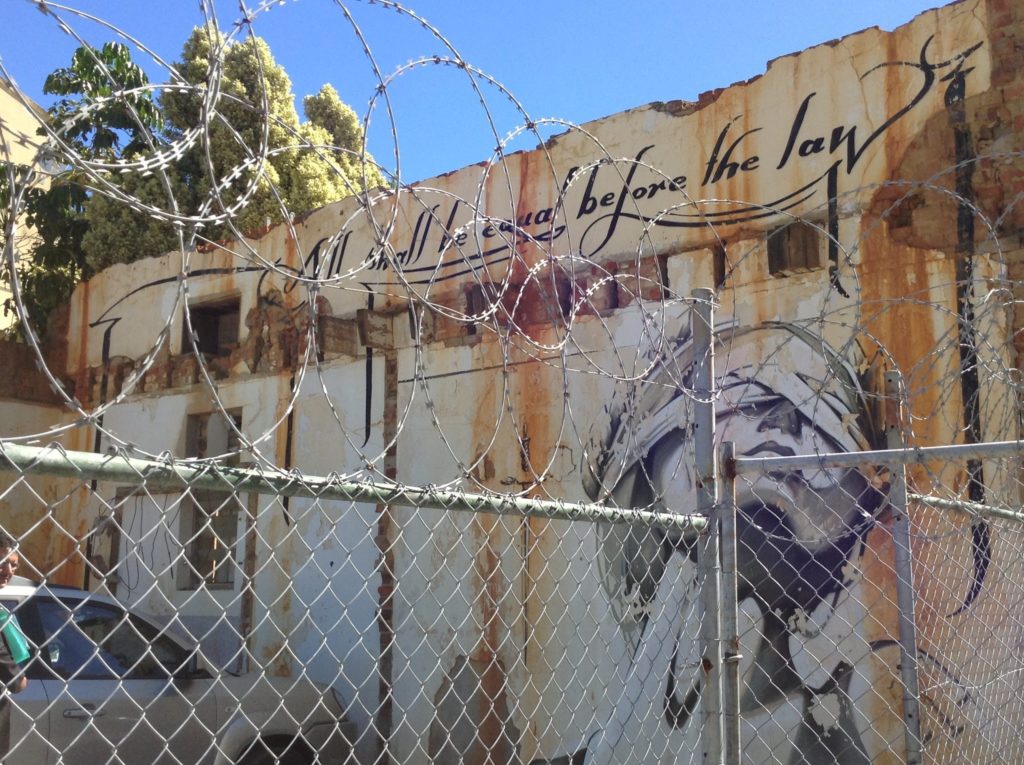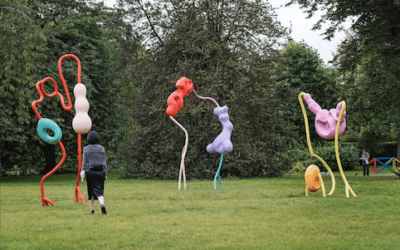[dropcap style=”font-size:100px;color:#992211;”]I[/dropcap]t’s minor news now, but Scarlett Johannson’s decision to support an Israeli soda machine over one of the world’s predominant charities caused some stir for all the right reasons – it highlighted the tragedy of the continued occupation of Palestine.
Johannson had a contract with SodaStream, a kitchen appliance that will turn your tap water into seltzer. Add some flavoring, and you can have cheap, homemade, knockoff ginger ale, I guess.
The problem is that SodaStream has a factory in Mishor Adumim, an industrial park in a West Bank settlement, the same settlements that have inhibited the two-state solution and are technically illegal under international law.
The starlet chose to break ties with Oxfam, which opposes the construction of Israeli settlements in the Occupied West Bank.
Though the company touts its cross-cutting economic policies that bring cooperation between Israelis and Palestinians in high-profile pieces in the New York Times, there is little doubt that the actions of one corporation do little to change a policy that is degrading to Palestinians and counterproductive to Israeli security.
Boycott, Divest, Sanction (BDS)
BDS stands for Boycott, Divest, and Sanction, an economic movement started in 2005 that attempts to put the economic stranglehold on Israeli businesses operating out of the Occupied Palestinian Territories.
Increasingly in the last decade, right-wing Israeli governments have moved some of their most vocal orthodox supporters into settlements on land that isn’t theirs.
These settlements have become an enormous obstacle to peace as time has gone on and as the issue of forcing people off land that they forcibly settled becomes increasingly complex.
The least of which issues are that settlements actually do contribute to economic development, though when one overlaps class and ethnicity, it becomes clear that Israeli-owned companies that employ Palestinian workers are hardly a model for equitable development.
Thus, we have the BDS movement, which has made significant gains in recent months due in part to the Johannson controversy. Major European pension funds have already divested. Major churches have debated joining the BDS campaign, and an American academic association has called for and won boycott against Israeli universities.
Links to Apartheid
The movement takes much of its energy and idealism from the campaign that ended apartheid in South Africa twenty years ago.
Israel has suffered some withering critiques that compare the country to apartheid-era South Africa, where segregation based on race and ethnic group created an institutionalized racism unlike anything else in the modern world.
South African apartheid was a legal structure that held Blacks, Coloureds, and Indians to certain occupations and residential areas based on a hierarchical race/class structure that had slowly been built up over nearly a century.
Taken to its most extreme, the South Africans created myriad ‘Bantustans,’ whole mini-states that the nationalists used to segregate blacks away from other populations. While apartheid today is seen as merely racism taken to its extreme, the reality was actually far worse – the final plan for apartheid was to exile blacks from the country all together, confining them to their Bantustans and eliminating the problem of black empowerment entirely.
The fences, the settlements, the occupied territories – all have come under scrutiny for their similarity to apartheid measures in South Africa, though prominent Israelis fight vehemently against this comparison. The comparison cannot be made, they claim, in part due to millennia of persecution against the Jews and the need for a Jewish state.
Whether one agrees with that broad brushstroke or not is irrelevant to the argument at hand. The bigger issue is that apartheid fell twenty years ago at least in part, the conventional wisdom states, because of a BDS campaign across the developed world that politically and economically isolated South Africa and forced an end to apartheid.
Still Relevant?
The problem with this line of thinking is that the BDS movement did little to actually undermine the South African apartheid system. As Martin Meredith notes in The State of Africa, “While the government faced no immediate difficulty, the longer political reform was delayed, the weaker its position would become.”
The real parallels between Israel and South Africa are not in the overt oppression but in the response to challenges. After increased international pressure forced a complete arms embargo, South Africa poured its natural resources into their military sector. South Africa under apartheid had the fourth best military in the world.
The country built its own weapon systems. The South Africans were known for their counter-insurgency operations and many white Special Forces became high-paid mercenaries after apartheid fell.
Israel, with substantive help from the United States, is currently one of the world’s biggest arms manufacturers. Its tech sector dominates certain industries at least partially because of its security risks and a history of circumventing Arab sanctions.
The point that Meredith makes, and one I heard repeatedly throughout South Africa, is that the country never had to give up apartheid. The architects of the system realized, however, that they could either cede nominal power while keeping their actual privilege, or they could hold on to both and face continued uprisings in the future.
One has to question the ability of the BDS movement to actually impact the Israeli hardliners in this age. When apartheid fell, it was shortly after the collapse of the Soviet Union. Without the fear of Communism, the South Africans found it much more difficult to deal with the demands of an increasingly rights-driven US foreign policy at the height of its international political and economic influence.
The world has changed since those heady days of American unipolar dominance. Disregarding the support among evangelical Christians in the US, Israel can now turn to China, India, or even Brazil for its markets. Though nearly 1/3 of its trade comes from Europe, the BDS movement isn’t strong enough yet to force any real pressure on the country.
There is real fear within Israel, however. The Knesset tried to pass a law two years ago that threatened to sue Israelis who supported the BDS movement, a careless violation of freedom of expression.
The law was later shot down by the Supreme Court.
Several ministers, including the finance minister Yair Lapid have voiced concern that the country is on a “tipping point,” making his own comparisons to the campaigns against South African apartheid.
So if you’re the type that was desperately looking forward to having a SodaStream in your home, maybe it’s time to reconsider.
I would say stick with buying your soda instead of making it yourself, but then we get into all the messy business with union busting and targeted killings in South America.
You know what? Just go with water from the tap. It’s healthier for all.
Sterling Carter writes on the intersection of political economy, arts and culture, and human rights. He has over five years’ experience on African development, violence and conflict with organizations including Human Rights Watch, Global Witness, and Search for Common Ground. He is originally from Flora, Indiana but pulled up stakes long ago.



















